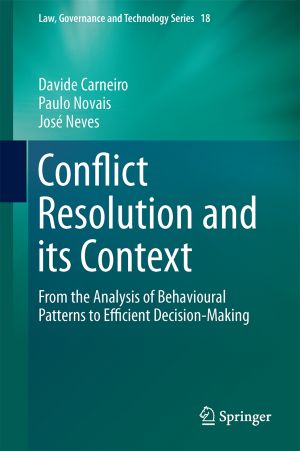
This book studies how technological solutions can be used to alleviate the current state of legal systems, with their clogged up courtrooms and inefficient conflict resolution methods. It reviews the shortcomings and disadvantages of traditional and alternative conflict resolution methods and turns to Artificial Intelligence for problem-solving techniques and solutions.
The book is divided into four parts. The first part presents a general and systematic analysis of the current state of the legal systems, identifying the main problems and their causes. It then moves on to present UM Court: a framework for testing and prototyping conflict resolution services. This framework was developed with the objective of using Artificial Intelligence techniques to build a service environment for conflict resolution. The third part of the book takes a step into the future by analyzing the use of Intelligent Environments in the support of conflict management and resolution. It describes the approach taken and the experiments performed in the Intelligent Systems Lab of the University of Minho. The final part of the book contains the conclusions and shows the potential advantages of the use of Intelligent Environments as a way to implement better conflict resolution procedures (virtual or real), in which all the participants have access to more and better information and are able to take better informed decisions.